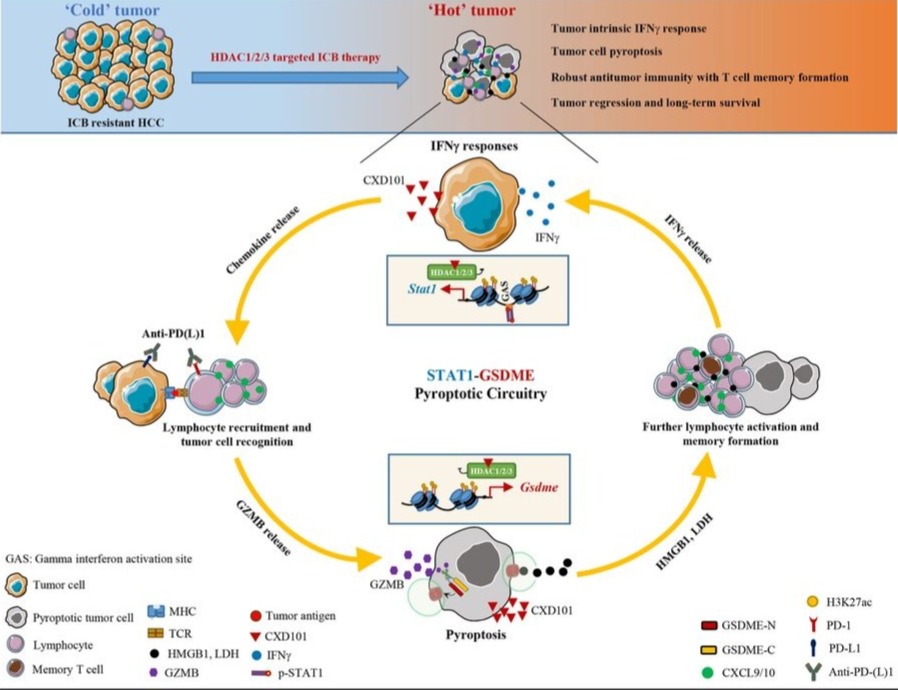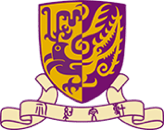The identification of clinically druggable targets that restrict antitumour immunity is required to develop potential combination therapies. Using state-of-the-art single-cell multiomics in their newly established preclinical immune-checkpoint inhibitor (ICI)-resistant models and patients with HCC treated with anti-PD-1 therapy, Prof. Alfred S.L. Cheng’s research team identified class-I HDACs as key epigenetic drivers restricting the amplification of the antitumour immunity cycle, thereby contributing to the immune-refractory features of tumor microenvironment (TME). The successful conversion of the immune-excluded into an inflamed TME through epigenetic activation of a pyroptotic circuitry provides a mechanistic basis of a new combination immunotherapy with CXD101, a selective class-I HDAC inhibitor in patients with ICI-resistant HCC, which is currently tested in a Phase-II clinical trial in the Prince of Wales Hospital, Hong Kong (NCT05873244).
This research has been published in Gut:
https://gut.bmj.com/content/early/2024/11/01/gutjnl-2024-332281.info

 This work was primarily done by Dr. Yalin Tu (left) and Dr. Haoran Wu (right), former PhD students of Prof. Alfred Cheng (middle).
This work was primarily done by Dr. Yalin Tu (left) and Dr. Haoran Wu (right), former PhD students of Prof. Alfred Cheng (middle).





